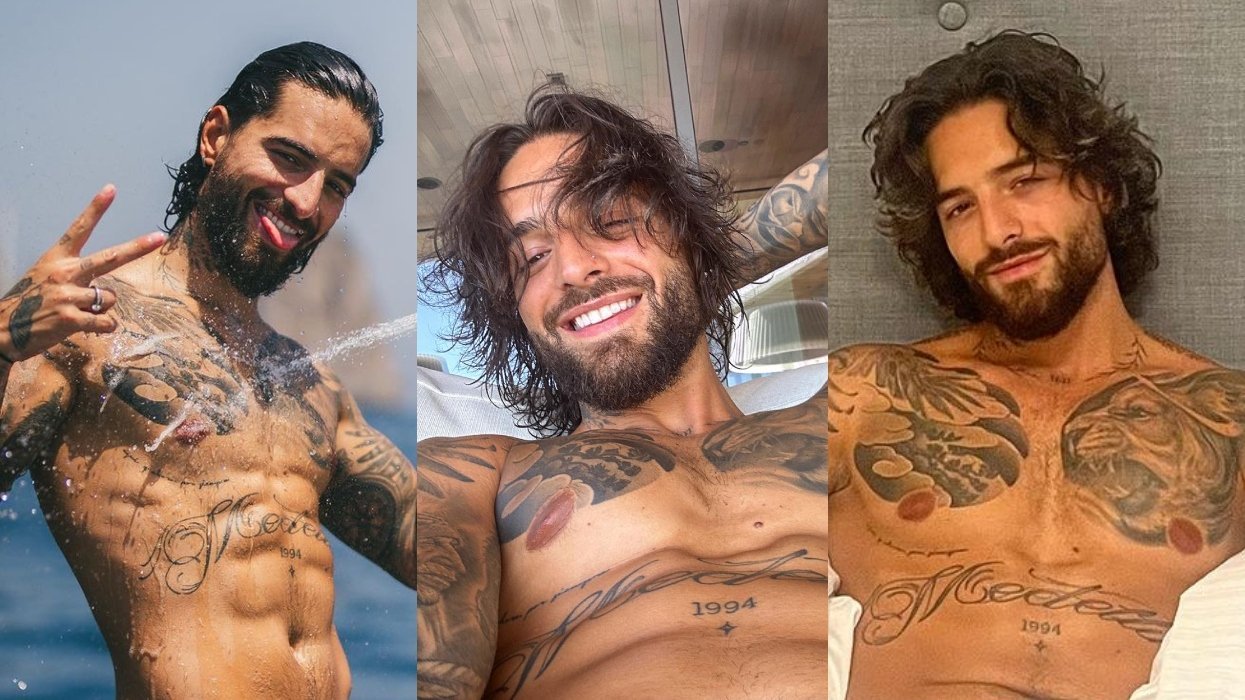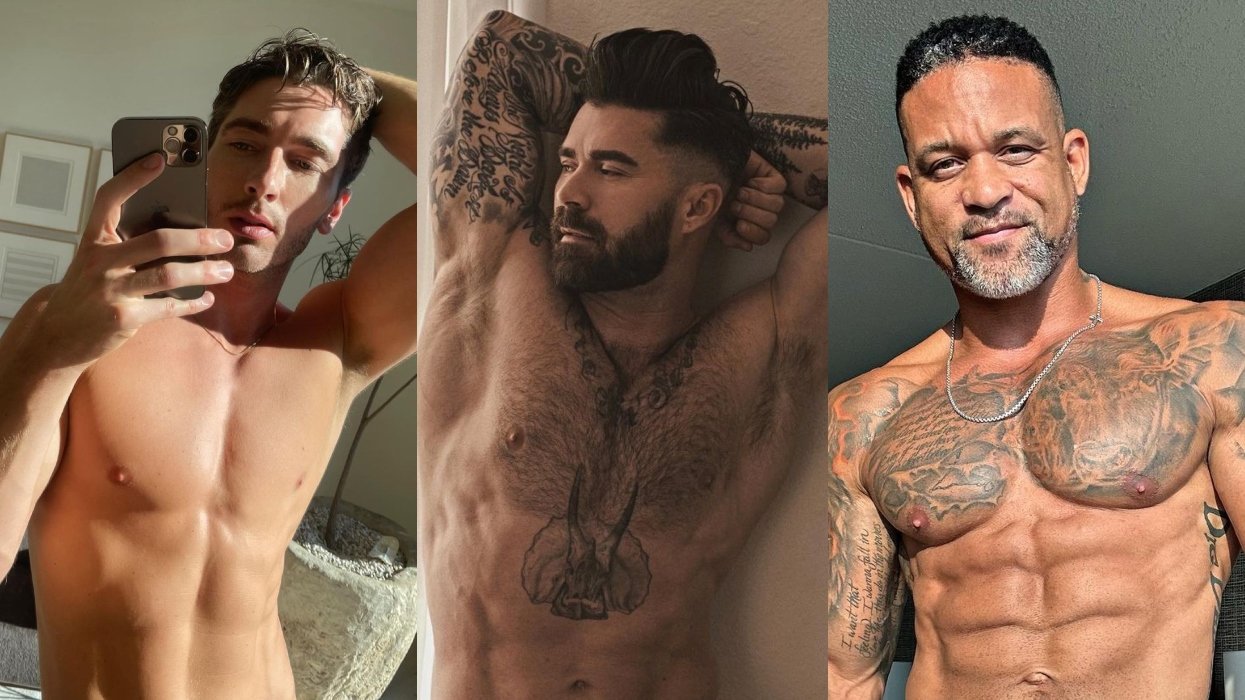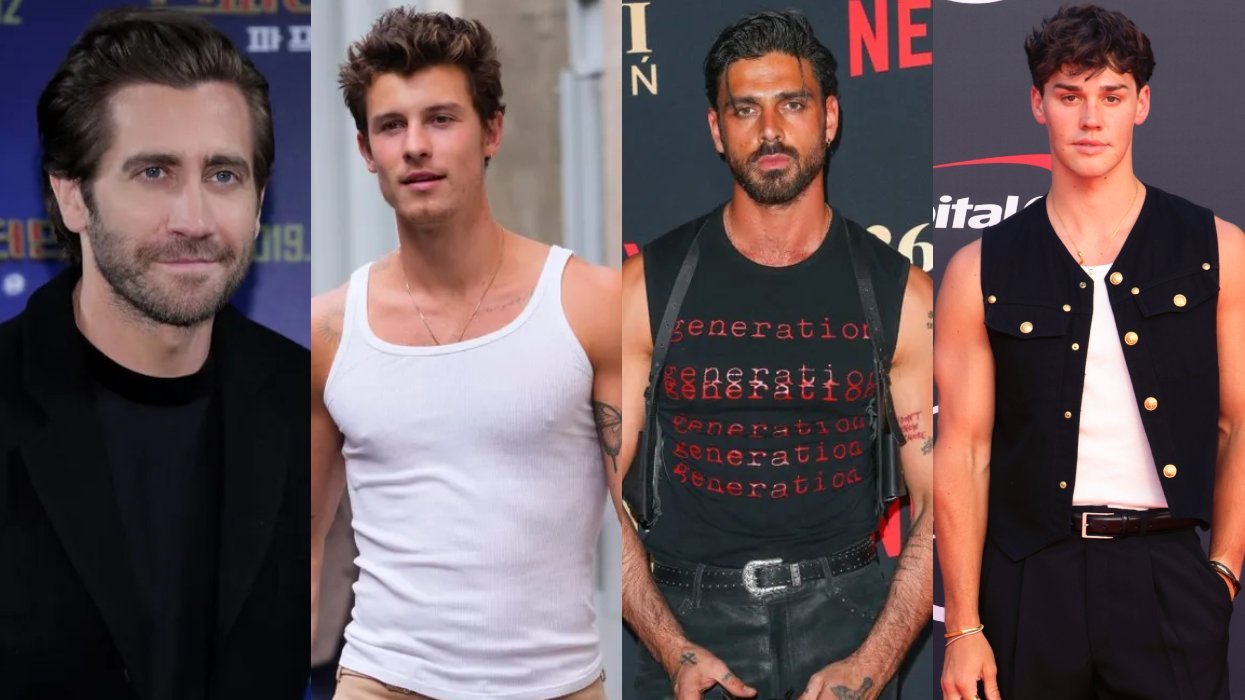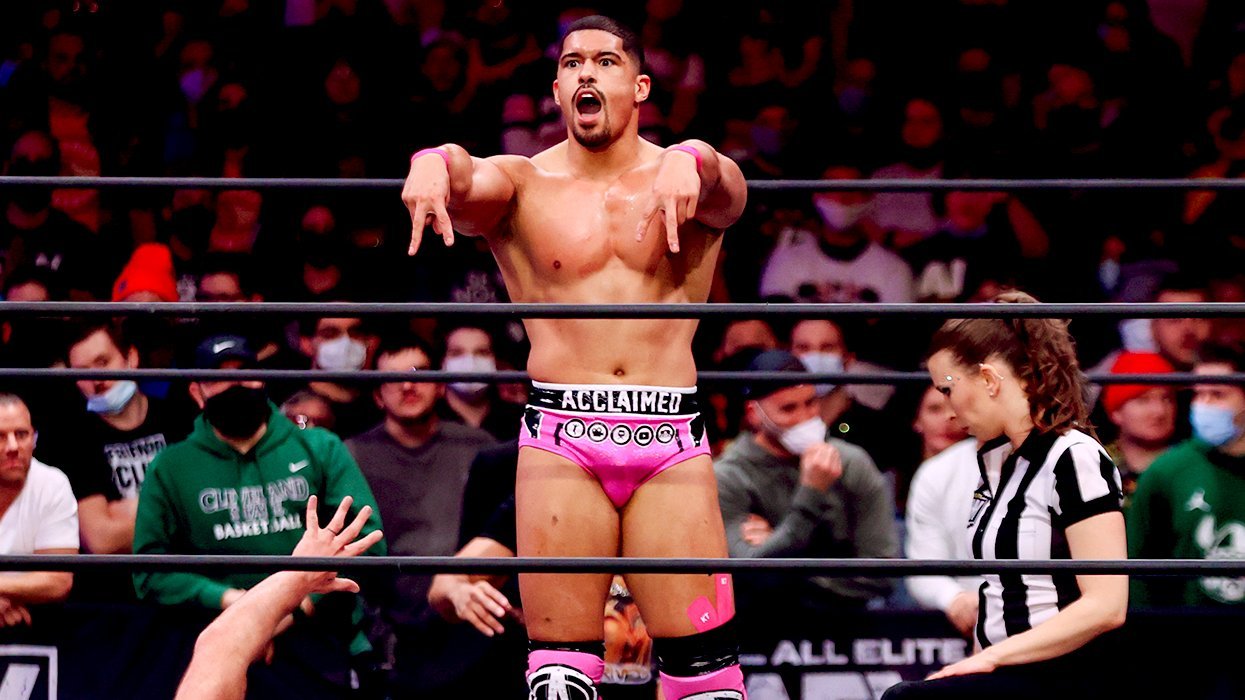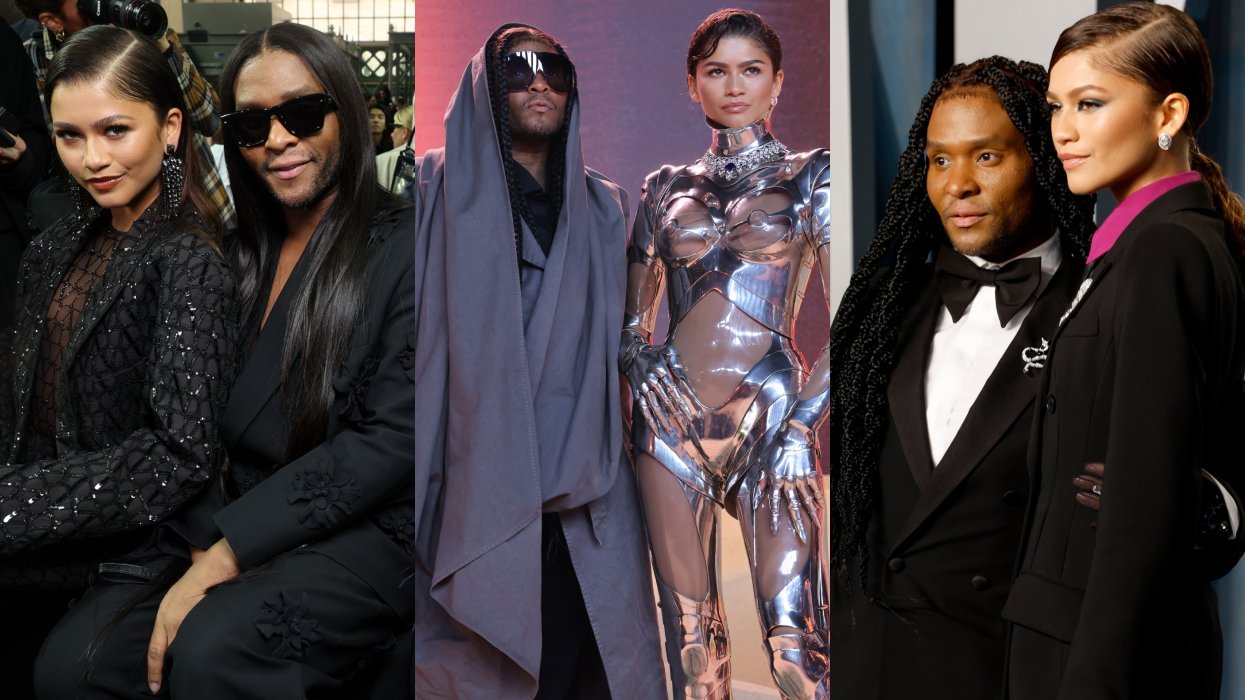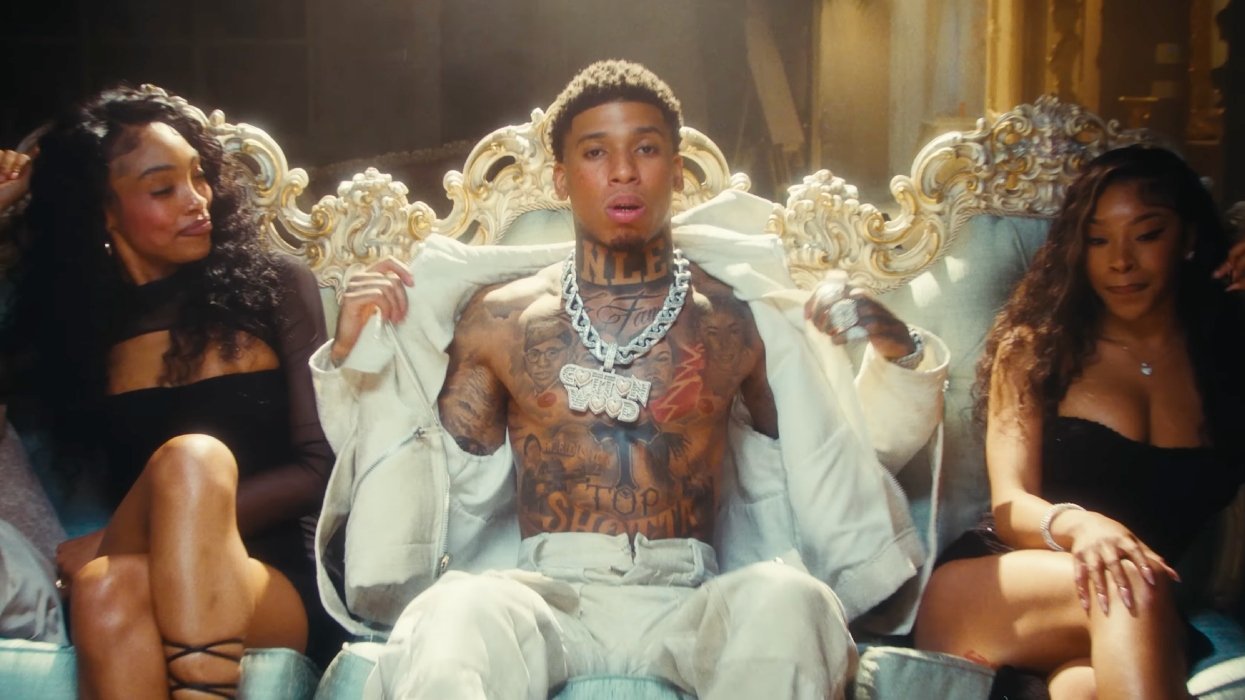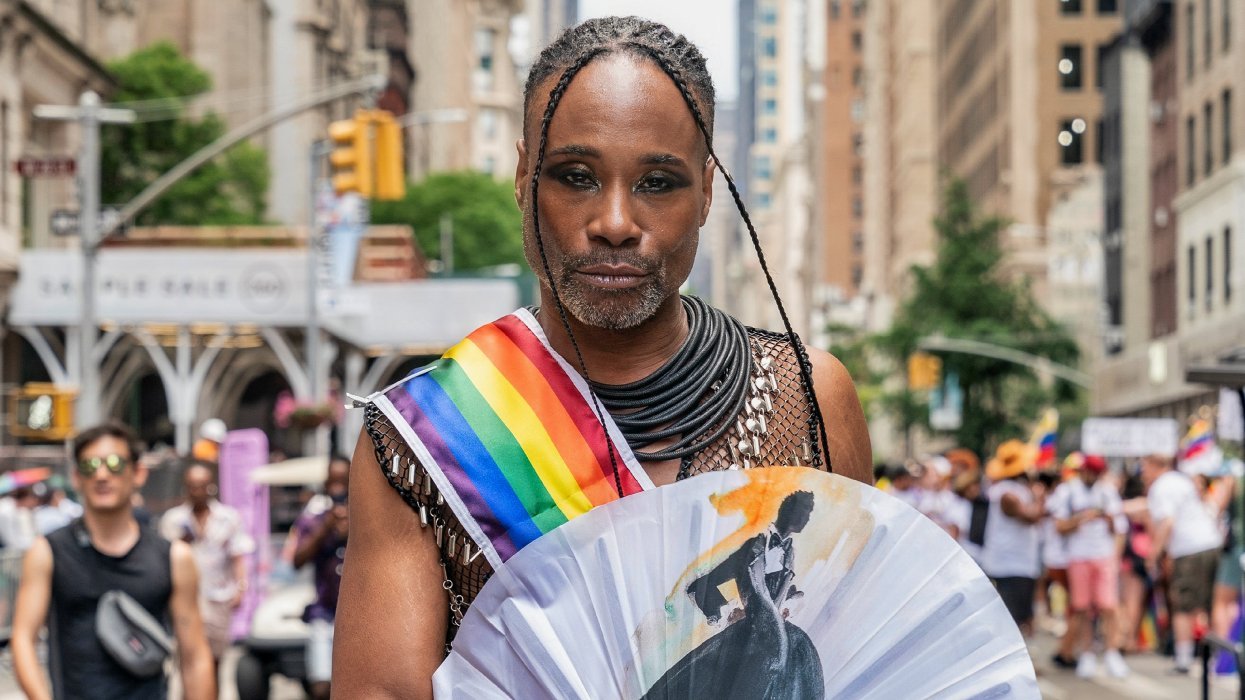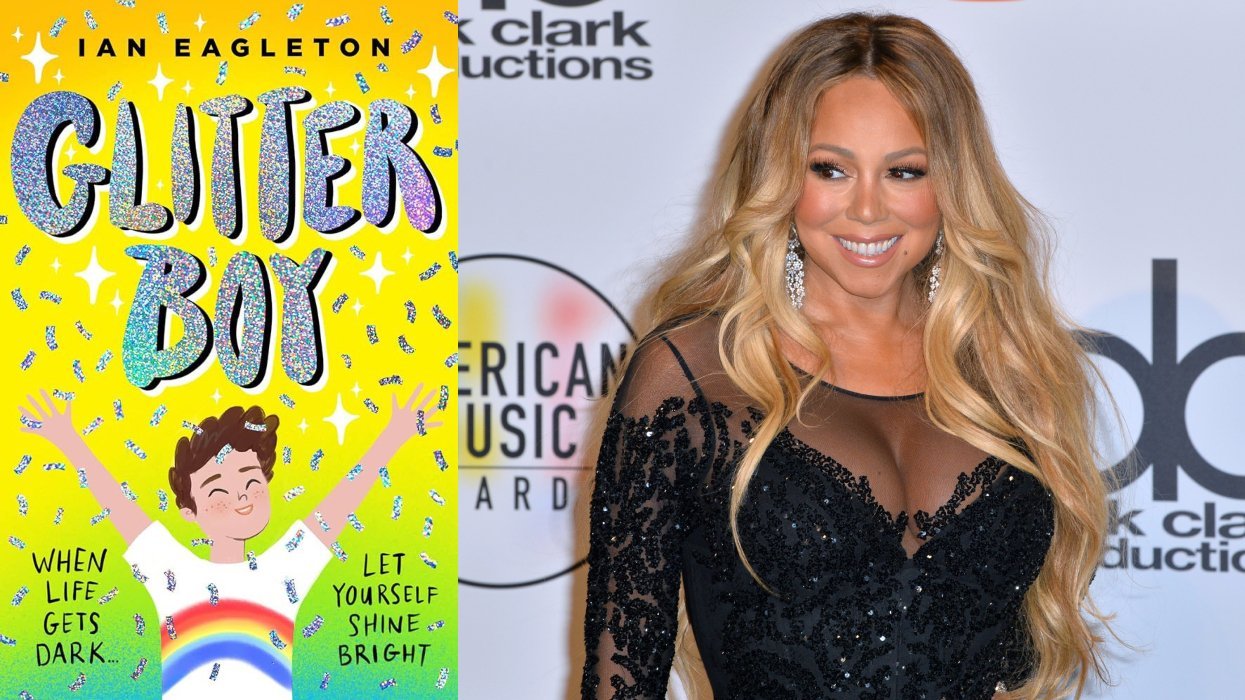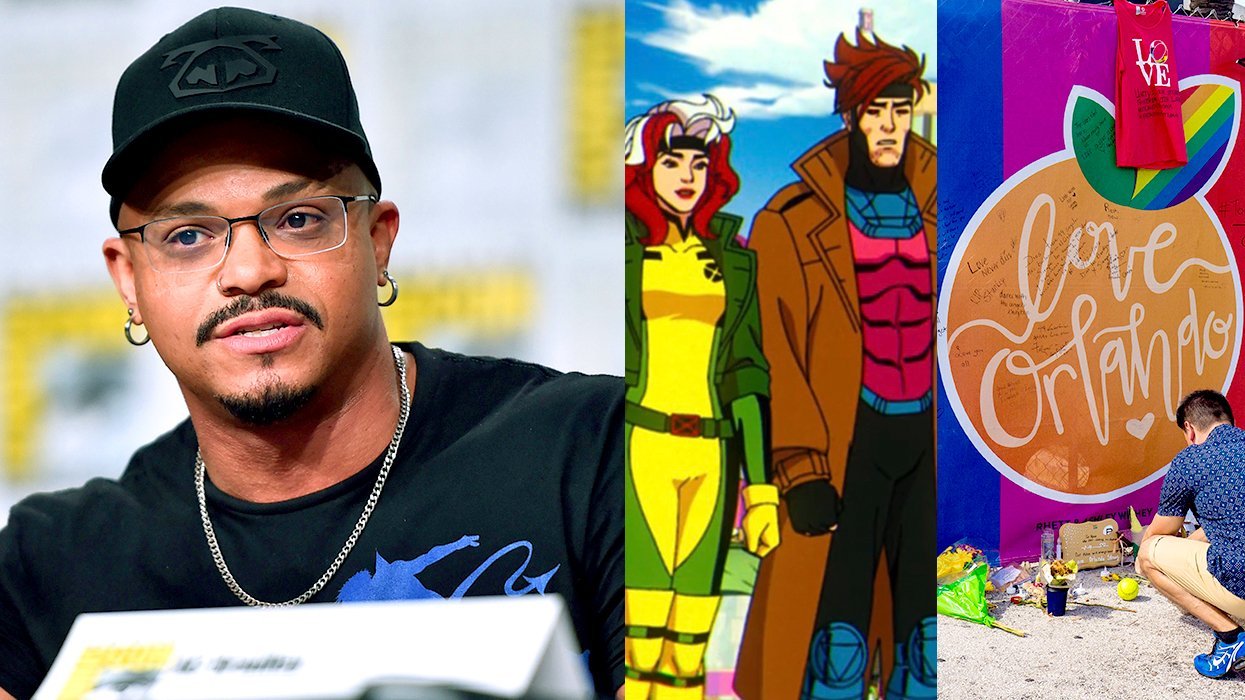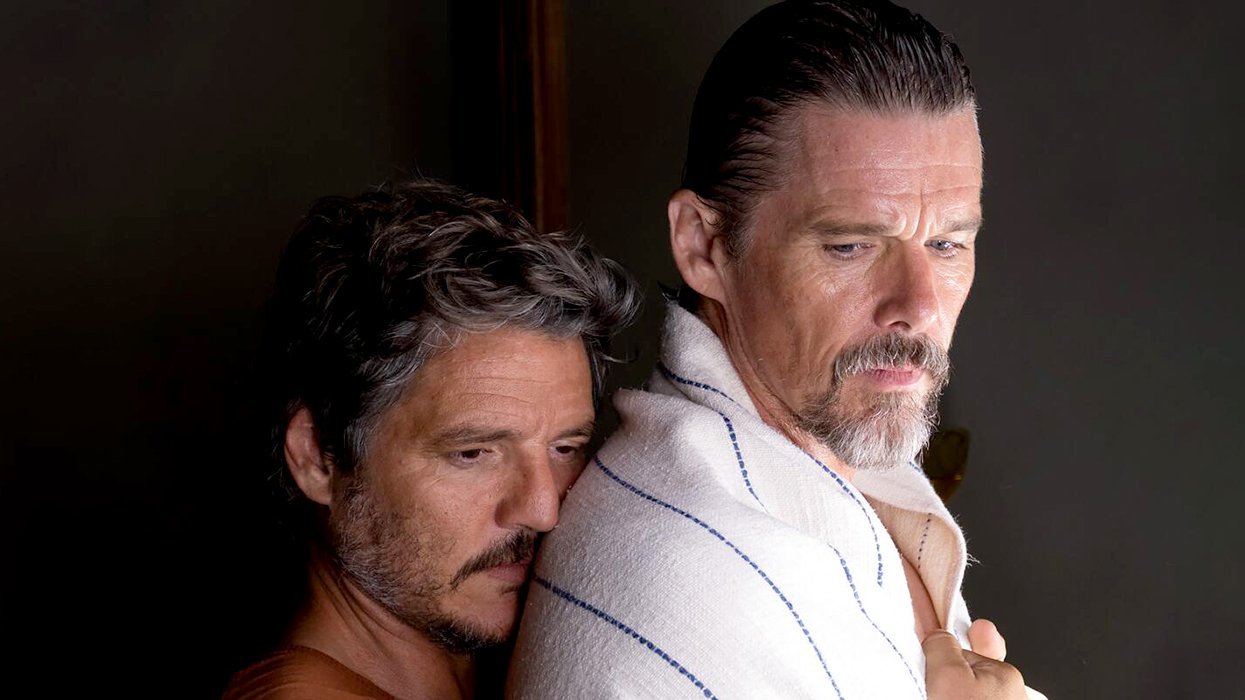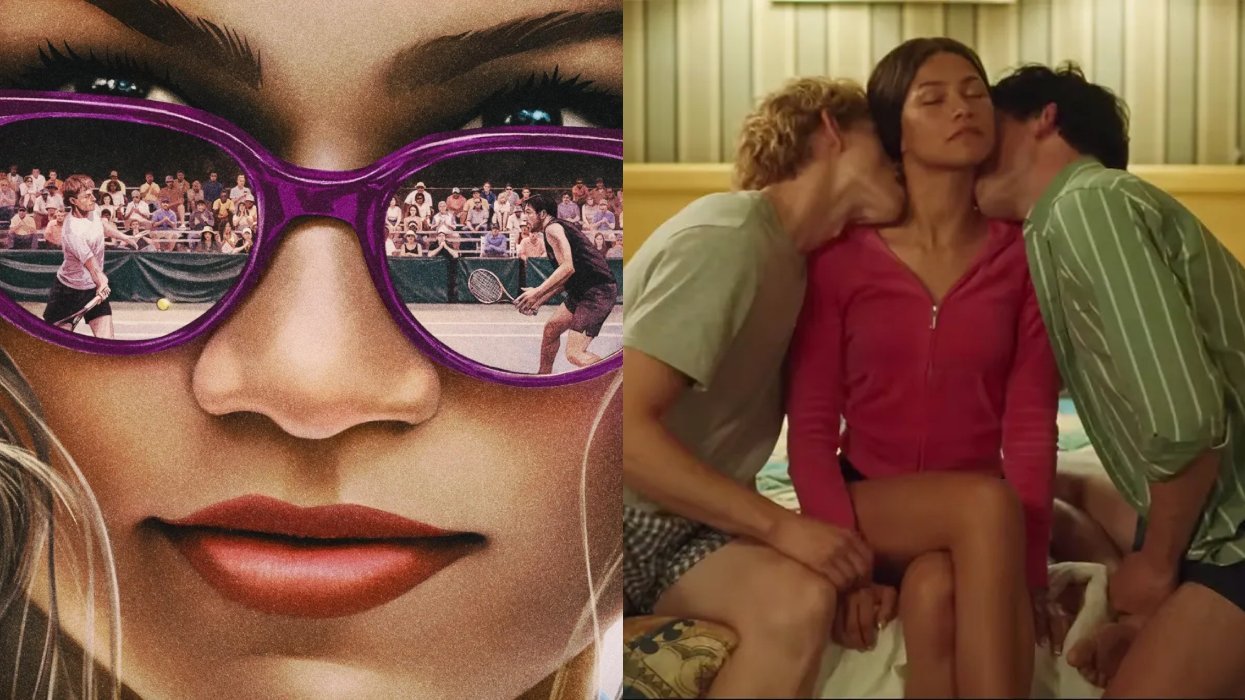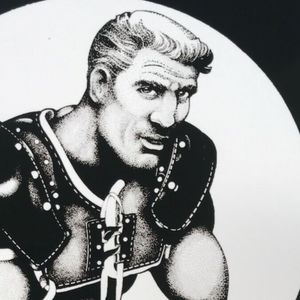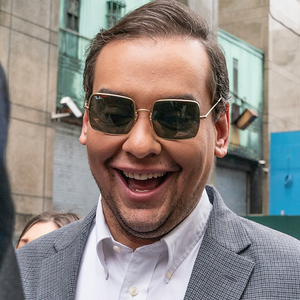James Baldwin died almost 30 years ago and you can best believe he is rolling his eyes in his grave right now. This morning, Donald J. Trump--the least qualified, most divisive, least popular, most vulgar presidential nominee ever, and generally the personification of liberal comeuppance--was sworn in as the 45th President of the United States. Some are still in disbelief--how did this happen? How did we get here? Really, him? But the signs were there, the signs have always been there, and James Baldwin was reading them aloud way before anyone else even bothered to take notice.
Related | Four Famous Writers Choose Their Favorite James Baldwin Books
In a spellbinding new documentary, I Am Not Your Negro, Haitian director Raoul Peck uses Baldwin's words to pin down the complex problem of race in America. Some ten years in the making, I Am Not Your Negro benefited from Peck's unprecedented access to Baldwin's archives. "I basically had access to everything: published, unpublished," Peck told me. "So I used this rare situation to make a rare film."
Related | James Baldwin Still Speaking Truth to Power in I Am Not Your Negro Trailer
Peck was inspired by a lost Baldwin manuscript, Remember This House, through which Baldwin intended to chronicle the lives of his slain friends: Civil Rights activists Medgar Evers, Malcolm X, and Martin Luther King, Jr. Peck attempts to recreate that final, unfinished work with I Am Not Your Negro. And the timing couldn't be better. Or worse. Depending on how you look at things.
By watching I Am Not Your Negro you can only see things clearer. For Peck, Baldwin was a philosopher, a touchstone he would return to again and again, but when he started making what would become I Am Not Your Negro, he was disenchanted by the lack of leadership and important voices. Music videos, no matter how radical, cannot be revolutionary, so Peck saw it as his "duty" to bring back Baldwin.
Here, Raoul Peck discusses the impact Baldwin has had on his life and the prescient wisdom still to be gleaned from one of the greatest minds of the past century.
OUT: It always surprises and delights me how on-the-nose James Baldwin was, like, decades ago--everything I have ever wanted to say about race or America he's already said, and said far better. This movie is full of so many quotes of his that are still painfully relevant. Was that your reasoning for making it?
Raoul Peck: I read Baldwin very early, when I was 16, 17. I probably got the book from friends, it was probably The Fire Next Time, and then I read all Baldwin after that, Giovanni's Room, etc. So he became part of my life. At the time, it's not like you had so many authors--you didn't have Toni Morrison, you didn't have all those great writers to find yourself; somebody that was so structured and at the same time so poetic, so human. And so he was part of my life and my work. I would go back to him when I had specific feelings or questions. It's almost like a Bible type of relationship. I say that this film took 10 years to make, but that's not true, it's much more than that if I count all the underlined books I had and all the important quotes that all of us probably [took from] his work.
At some point I felt, this has to be out again. We can't just go on in this present vulgarity and ignorance, totally disoriented. Young people are really disoriented. At one time they don't have the classic training that we used to have at school. At the same time they're bombarded with permanent fake info, fake data, pseudo knowledge. And the elders are not there anymore. Everything has the same value. So as a young person I always wonder how do you [navigate] that?
I had a father, I had uncles, I had books they would put in my hand and say, "You need to read that. If you don't read that, you know nothing." Today, who can say that to you? For me, it was if I could bring something, it was that--how do I bring the words to the forefront? Not a biography of Baldwin--his story is the story of many great men, so it's not the most important. The most important is what he left behind for us: the words. The words changed me, so he can change all the people as well. So that was the project. I didn't know formally what it would be, I didn't even think that such a film was possible.
And about the book, Remember This House--I got that four years into the process, when I was still debating what the film would be. Gloria Baldwin, the youngest sister who runs the estate, she was putting back a lot of cases and boxes to send to the New York Public Library. She gave it to me and said, "Take this. You will know what to do with it."

And that was Remember This House?
That was Remember This House, the manuscript, the notes, and also the letters to the editor, and that was it for me. That was the entry point I needed. It was an unfinished story, which for an artist is good because you can envision something. It's a thriller almost--how to find the book? As far as I'm concerned, he wrote it for me. I have read all Baldwin and I can't see what more I can write about this story, about these three friends.
So my work was to go throughout his work and find that book [Remember This House] which is already written. What I use in [I Am Not Your Negro] is a basically original idea, and also political idea, to link those three lives [Evers, X, and King]. And through those three lives to tell the story of America. I used the story of the origin of those three lives, the opposition at some point--at least regarding Malcolm and Martin Luther King--and then the process of them getting closer to one another, and then their assassination. So that's the structure I needed to tell the whole story.
I also had a rare situation of having access to everything. Nobody gives you access to everything. Usually you buy an option for one book, or one chapter sometimes. Here, I didn't have to choose. I basically had access to everything: published, unpublished. So I used this rare situation to make a rare film. Everything about this film is not natural or common because it never happened, and it rarely happens that you can hold rights for 10 years.
 Photo courtesy of Magnolia Pictures. Photo Credit: (c) Dan Budnik, all rights reserved.
Photo courtesy of Magnolia Pictures. Photo Credit: (c) Dan Budnik, all rights reserved.
How did you get that? How did you get that freedom?
Even my lawyer in L.A. said, "Raoul, there's no way you can have anything." They didn't even, at some point, respond to another client we had who wanted to option the rights. I said, "Well, I'll try anyway," and I wrote a letter saying who I was, why I wanted the rights. I couldn't even say which one--I couldn't say I wanted Giovanni's Room--I just said I wanted access to some of his work. Three days later they wrote me back: "If you can come to Washington, come visit us." Which I did the week after, and I was welcomed by Gloria.
After a few exchanges I understood it's because she knew my films. She had seen Lumumba and [former Prime Minister of the Congo Patrice] Lumumba was part of her history. She went for the first time to Africa with James Baldwin as a 20-year-old girl, and she worked for him as his secretary for many, many years, so she knew what Lumumba meant. And somehow she had confidence in me and she really let me do. She opened everything. I could go through all the boxes, read every letter, private, intimate, published, unpublished. That never happens.
So what do you hope people ultimately take away from this film?
For this film, I felt it was time to come back to Baldwin because of the state of the world, the state of what I feel around me--we need some fundamental [wisdom], some fundamental thoughts. And Baldwin was the perfect vehicle and the perfect thinker. I didn't have anything specific, but I knew at some point, because of the role he played in my life and in my work, I would probably have to confront that or at least give that back for other people to use.
It was pre-Obama, when I started working on this. It was not a very optimistic time. I felt there were no real leaders, there was no real voice you could really respect the way you could respect Baldwin's voice. And there was no real leadership. Most of the leadership of the Civil Rights Movement were killed, or they went to prison, or they were expelled, or they went into hiding, some of them went crazy, others became jokes or were bought. The system used many, many ways to get rid of you.
There was a big hole once they made an institution of Martin Luther King--and not Malcolm X, by the way--of the Martin Luther King they wanted to keep because the Martin Luther King of the last two years of his life was a radical. That's not the one they are praising. He got the right thing, which is class, not race. It's about class, that's the big elephant and nobody wants to speak about it. The King estate won't even give you access to the last two years of his speeches.
So I couldn't see anybody else. And it was a time when the rappers were the most revolutionary people. And that couldn't be. Not that I have anything against rappers...I'm for you expressing yourself, but don't make it as if you're the greatest philosopher of the century. It doesn't work. So I felt the need to bring back solid thinking of somebody that meant something and that you could not just brush off to the side. Those were some of the incentives I had. I needed to make a stronger statement about the state.
I hope Baldwin will help. The conversation around Baldwin, the reappropriation of his work and his words--because when you read it, you say, "Wow, this guy was saying that in a time when it was dangerous." And today we can't even open our mouths. What's the risk? And I hope people get that.
I Am Not Your Negrohits theaters February 3.
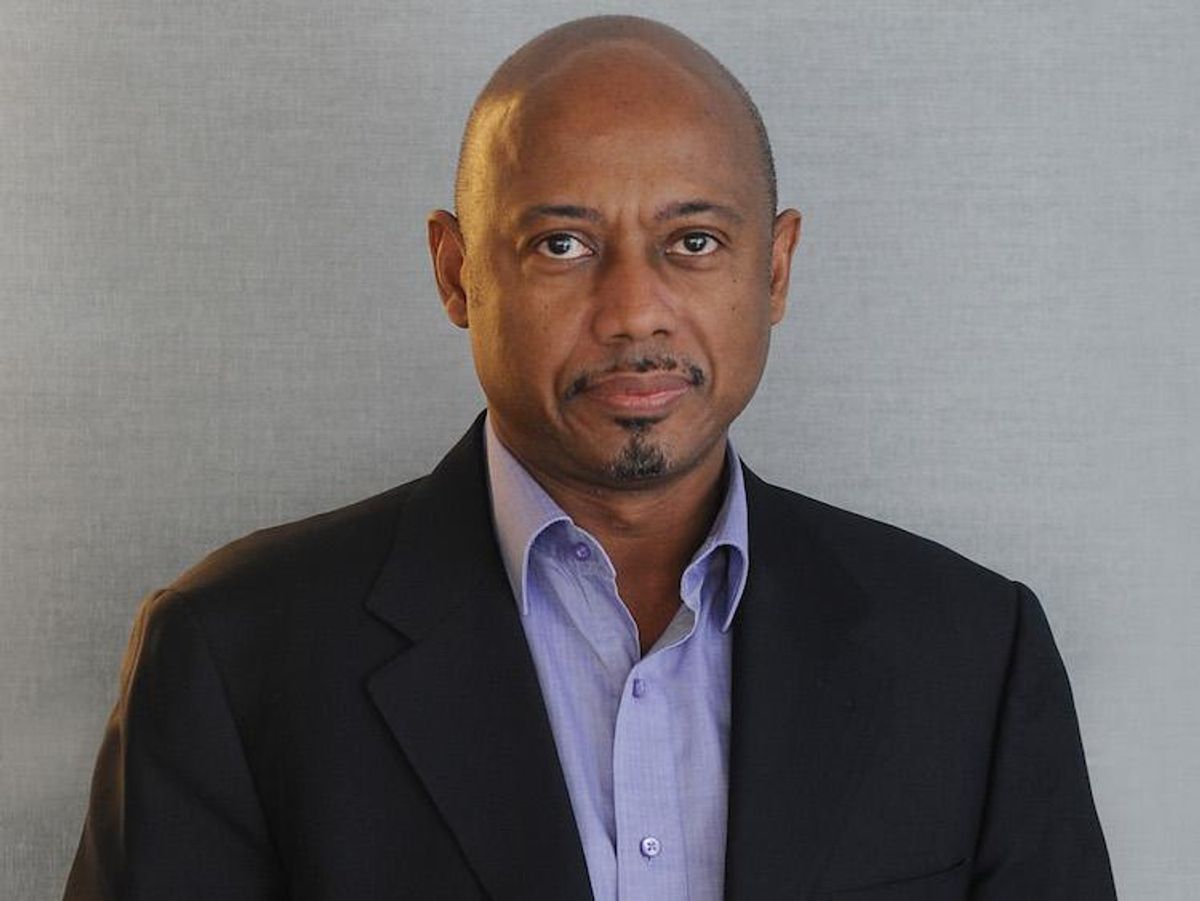



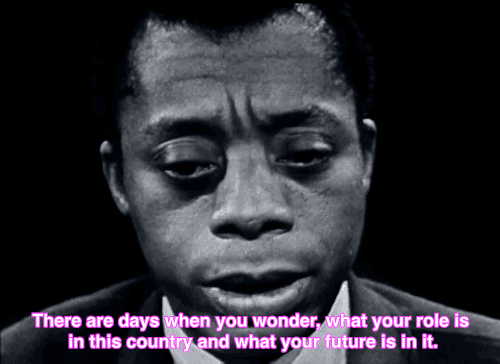
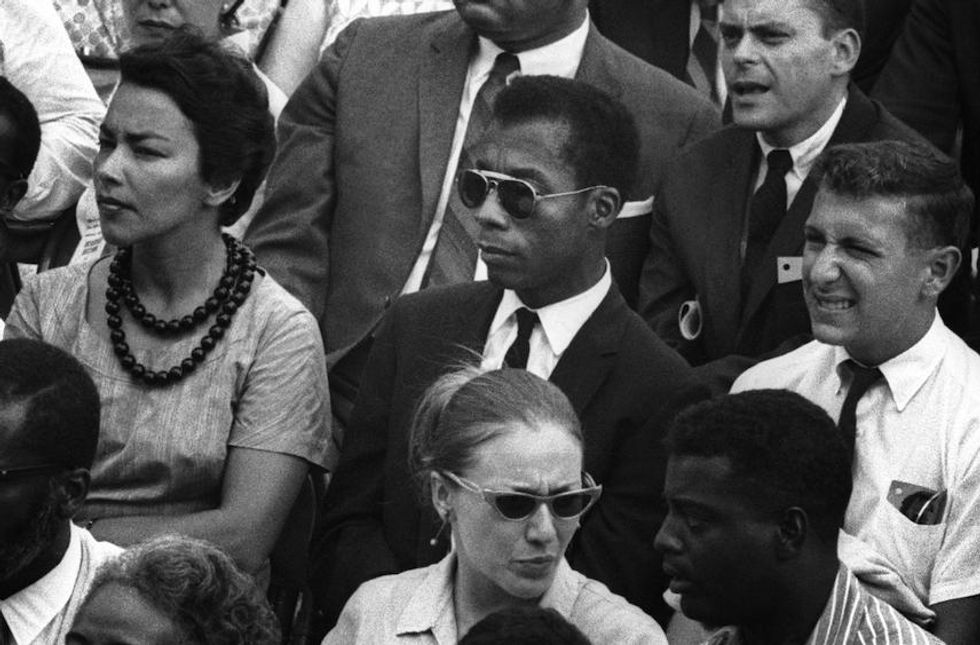 Photo courtesy of Magnolia Pictures. Photo Credit: (c) Dan Budnik, all rights reserved.
Photo courtesy of Magnolia Pictures. Photo Credit: (c) Dan Budnik, all rights reserved.



